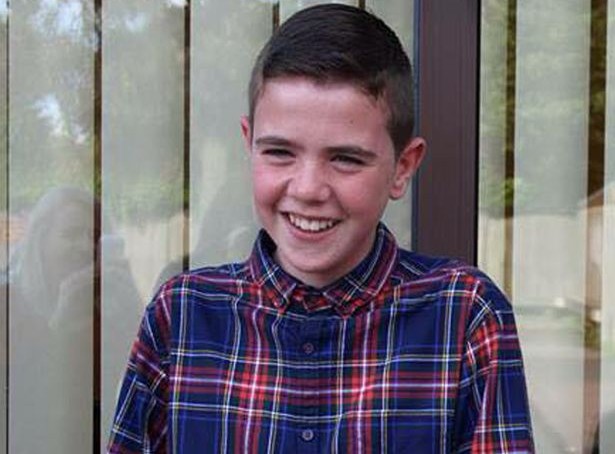***UPDATE, 1 March 2016: Beth has today handed in her petition to the Senedd (the National Assembly of Wales). This article will be refreshed with the latest updates.
A mother has implored the NHS to introduce routine screening for type 1 diabetes after the death of her 13-year-old son.
Peter Baldwin, who died on January 6, 2015, didn’t notice any symptoms of type 1. They were masked by a chest infection and virus.
His mother, Beth, has since campaigned for routine testing for type 1 diabetes whenever children show flu-like symptoms. In the process she has raised £20,000 for charity and created a petition that currently has over 1,000 signatures. She has described the feeling of losing a child, and how it has motivated her to campaign so that others don’t have to go through it.

“It still doesn’t seem real,” said Beth. “I’m still living in a bit of a blur, like I’m on autopilot.
“It’s something as a family we will never get over and will have to learn to live with and adapt our lives accordingly.
“When something as devastating as this happens the bubble you used to live in is crushed. You just have to keep busy and live your life the way that Peter would have wanted.”
Masking symptoms
People who have already been diagnosed with type 1 diabetes are urged to check their blood glucose levels more frequently when they have flu symptoms. This is because illness can mask the symptoms of high and low blood sugar.
In Peter’s case, nobody knew he had type 1 diabetes. So, because of the chest infection and virus he had at the time, he didn’t feel the effects of high blood sugar. His blood glucose levels went so high that he went into a coma. This is a very serious complication of diabetes called diabetic ketoacidosis.
Screening every child: is it practical?
The argument against screening every child for type 1 diabetes is that it’s not practical. But Beth believes that screening will, in the long run, save the NHS money, because it will lead to fewer incidences of hospitalisation.
“Screening for type 1 is medically possible but the NHS don’t currently screen as there is no vaccine or cure.
“But our argument is that knowledge is power. if we’d known from birth that Peter had the potential to develop type 1 […] we’d have known to look out for it and do the simple finger prick or urine sample whenever he was ill.
“Screening can be done at birth to confirm if the child carries the antibodies that lead to type 1 onset.”

The routine test could be carried out either by finger-prick testing or with a urine sample. By identifying children at risk of type 1 diabetes, parents would be more likely to monitor blood glucose levels during times of illness.
“If Peter had been living with type 1 diabetes and had been aware of it I know he would have been an ambassador for the condition.
“He did stuff for Teenage Cancer Trust and he was on the school council – anything he could get his teeth into.
“This petition is all him. It’s us carrying it out but it’s Peter who is the driving force. This is what he would have wanted.”
How do we make the general public more aware of type 1 diabetes?
There have been a number of recent attempts to make type 1 diabetes more prominent in the public consciousness. In August 2015, Emma Warrington petitioned to have the symptoms of type 1 included in the “Red Book” provided to new parents by the NHS.
Earlier this month, 13-year-old Anja Busse had success with her own petition. Anja, who has type 1 diabetes, had campaigned for toy retailer American Girl to produce a “diabetes care kit” to go with their dolls. And American Girl, who are known for producing a diverse range of dolls in an effort to represent everyone, accepted. It is available for $24.
Image source: walesonline.co.uk




